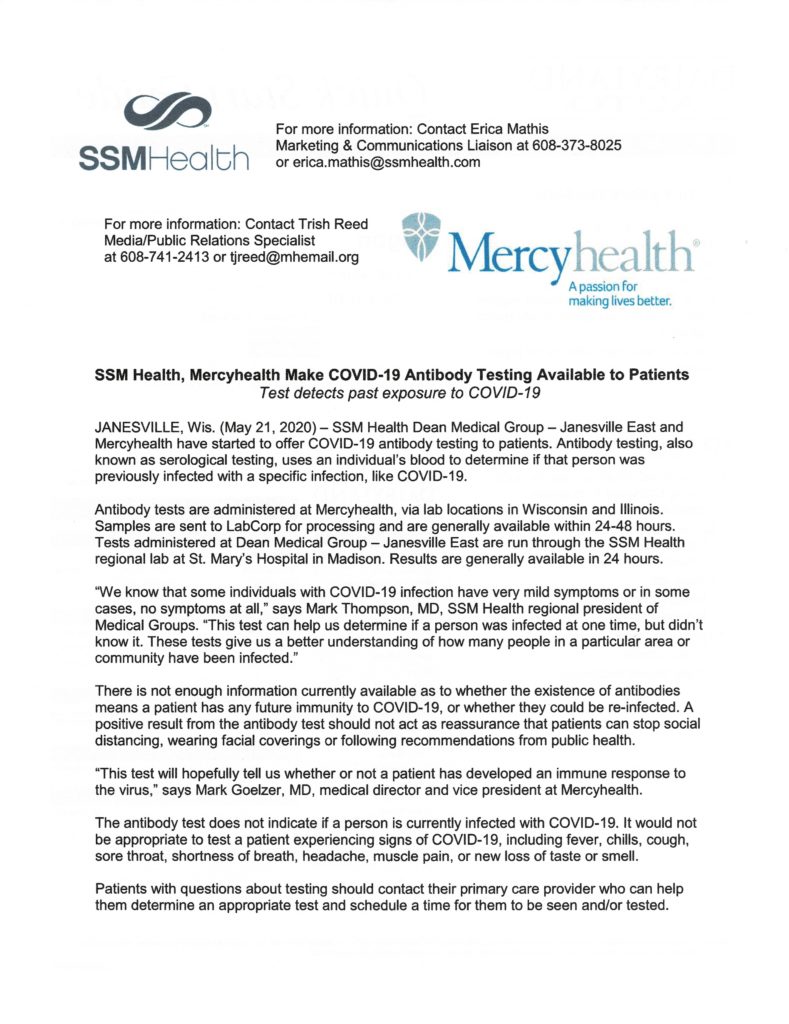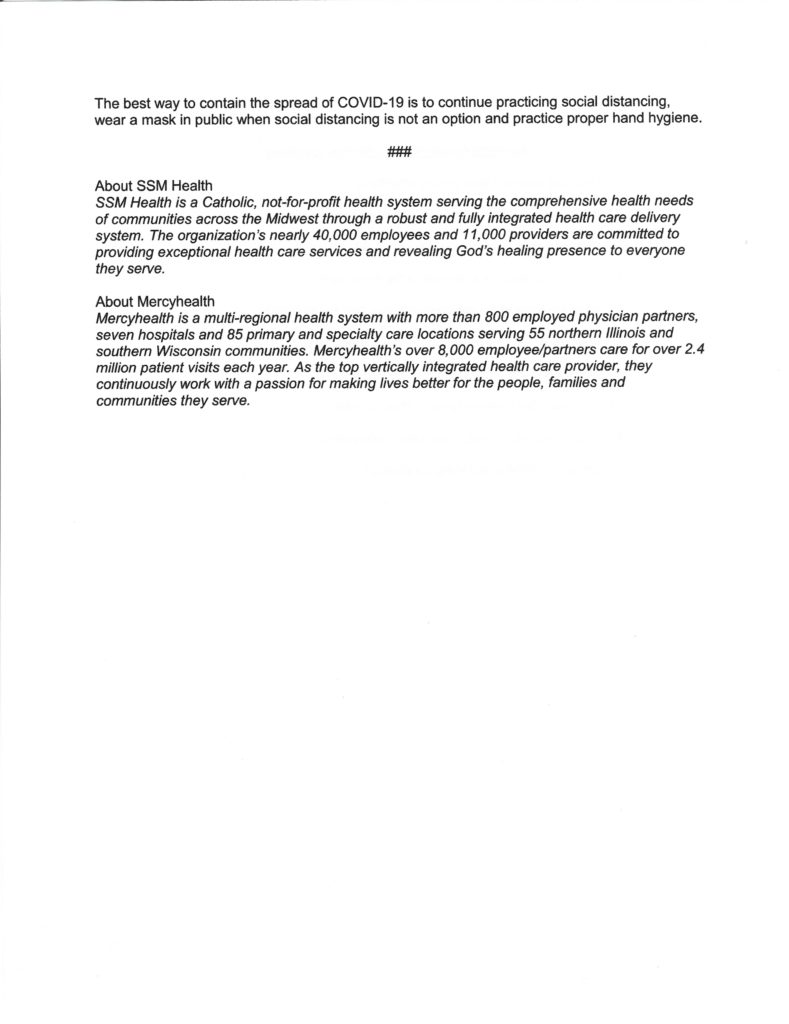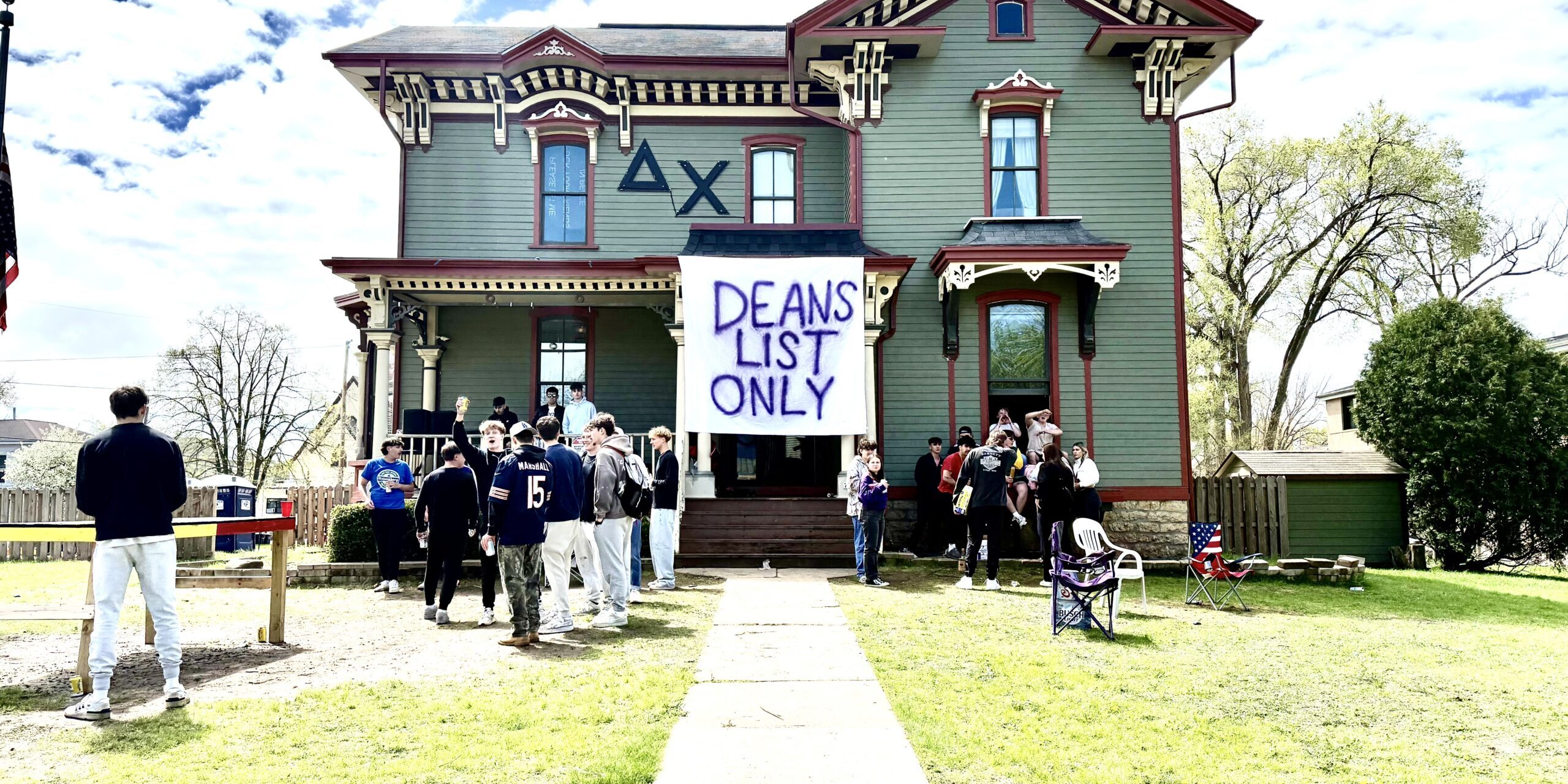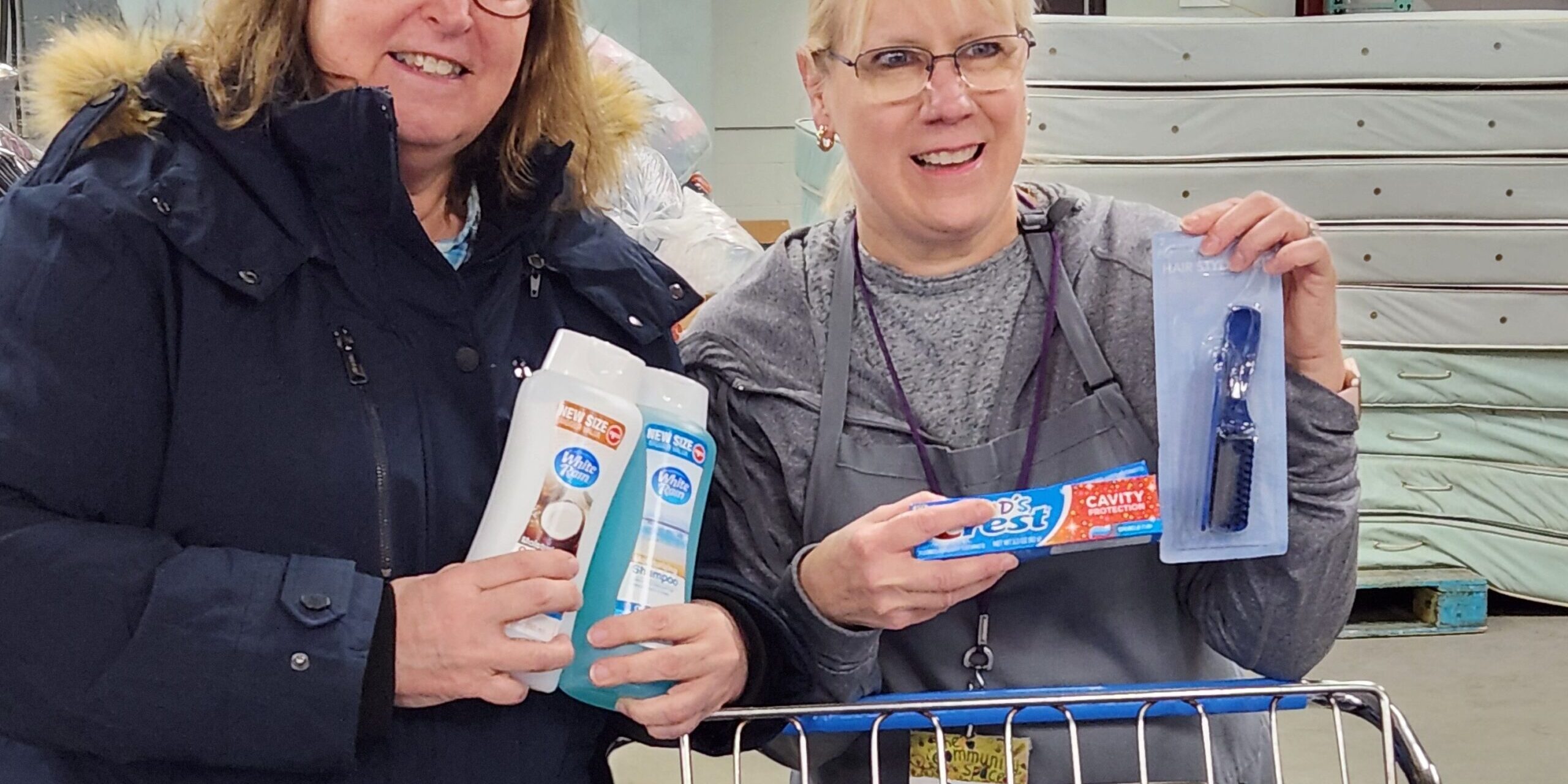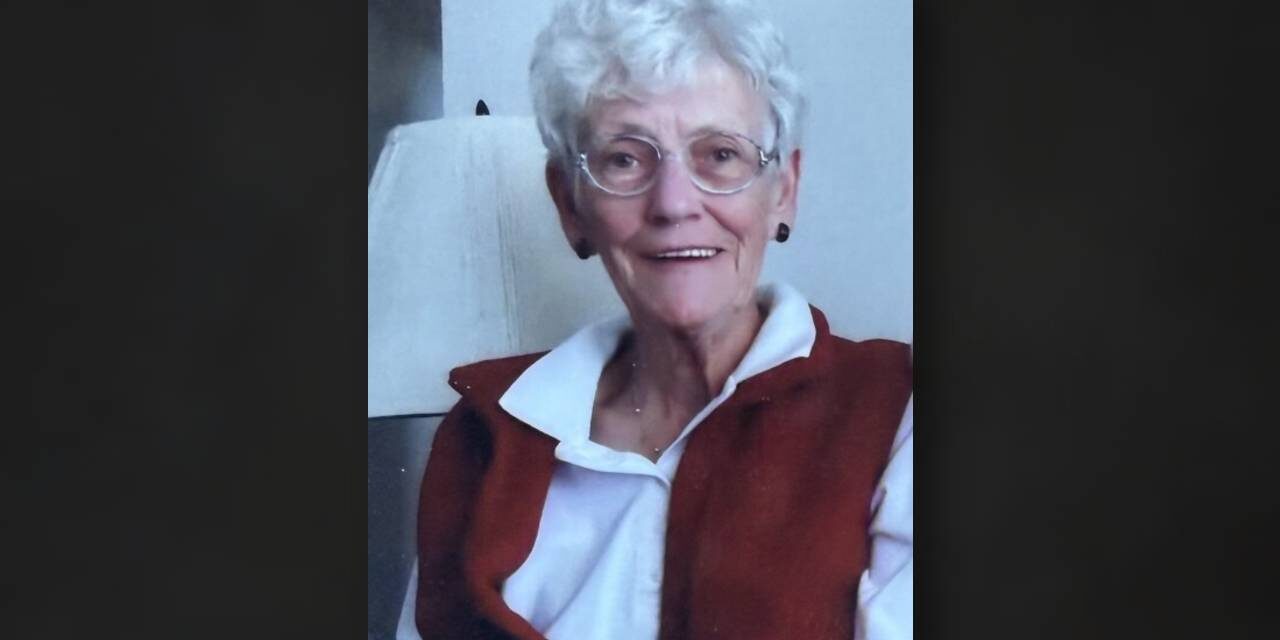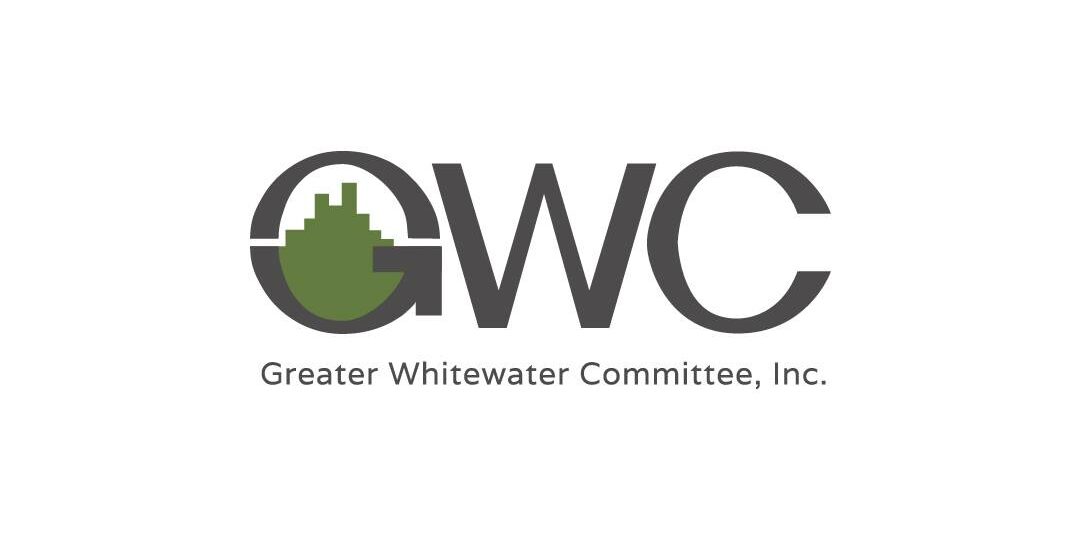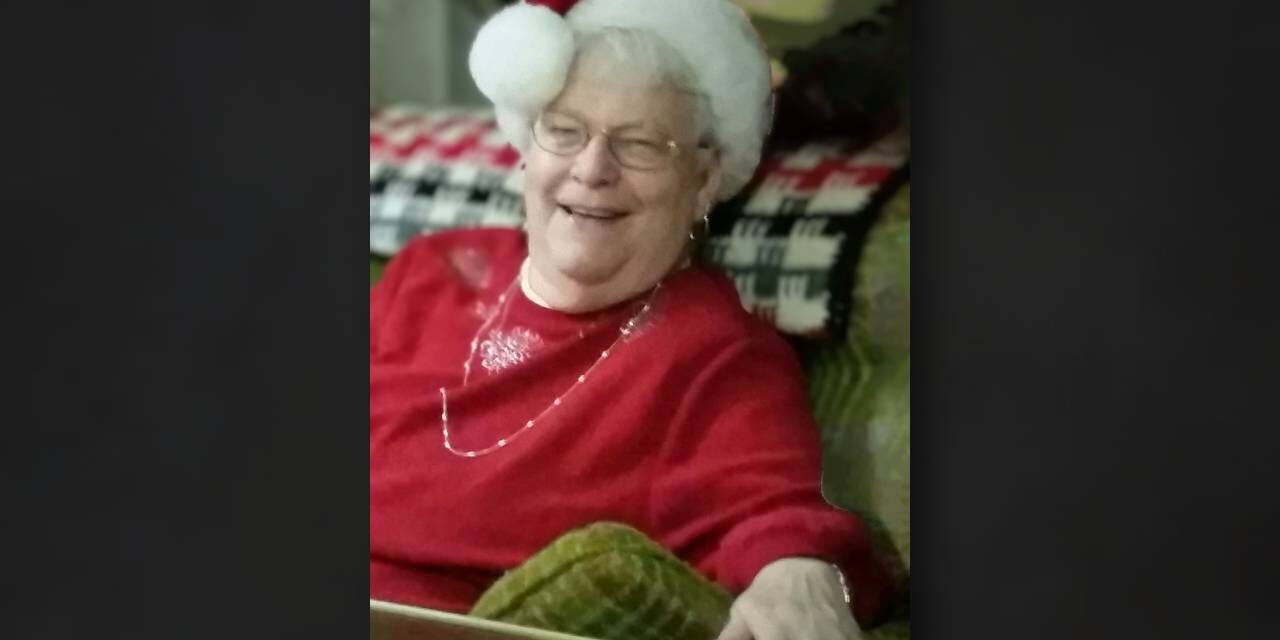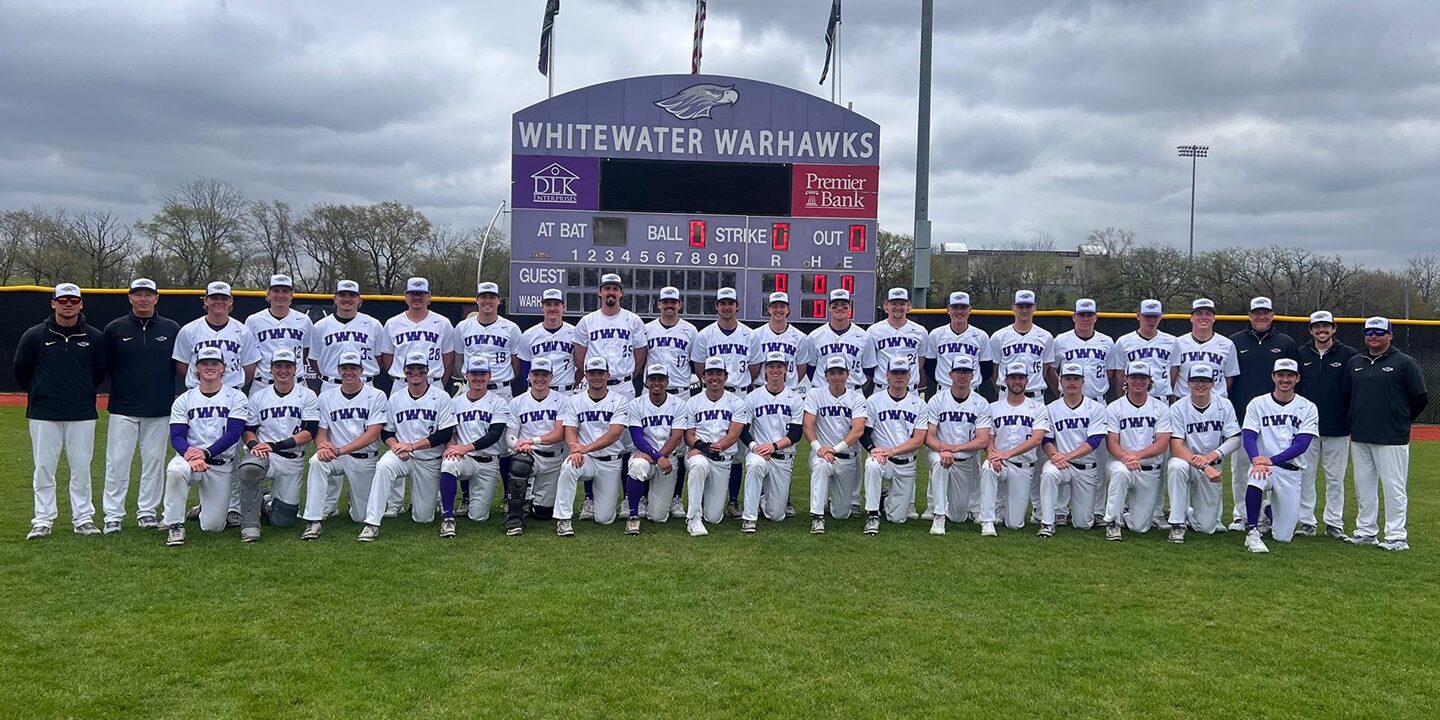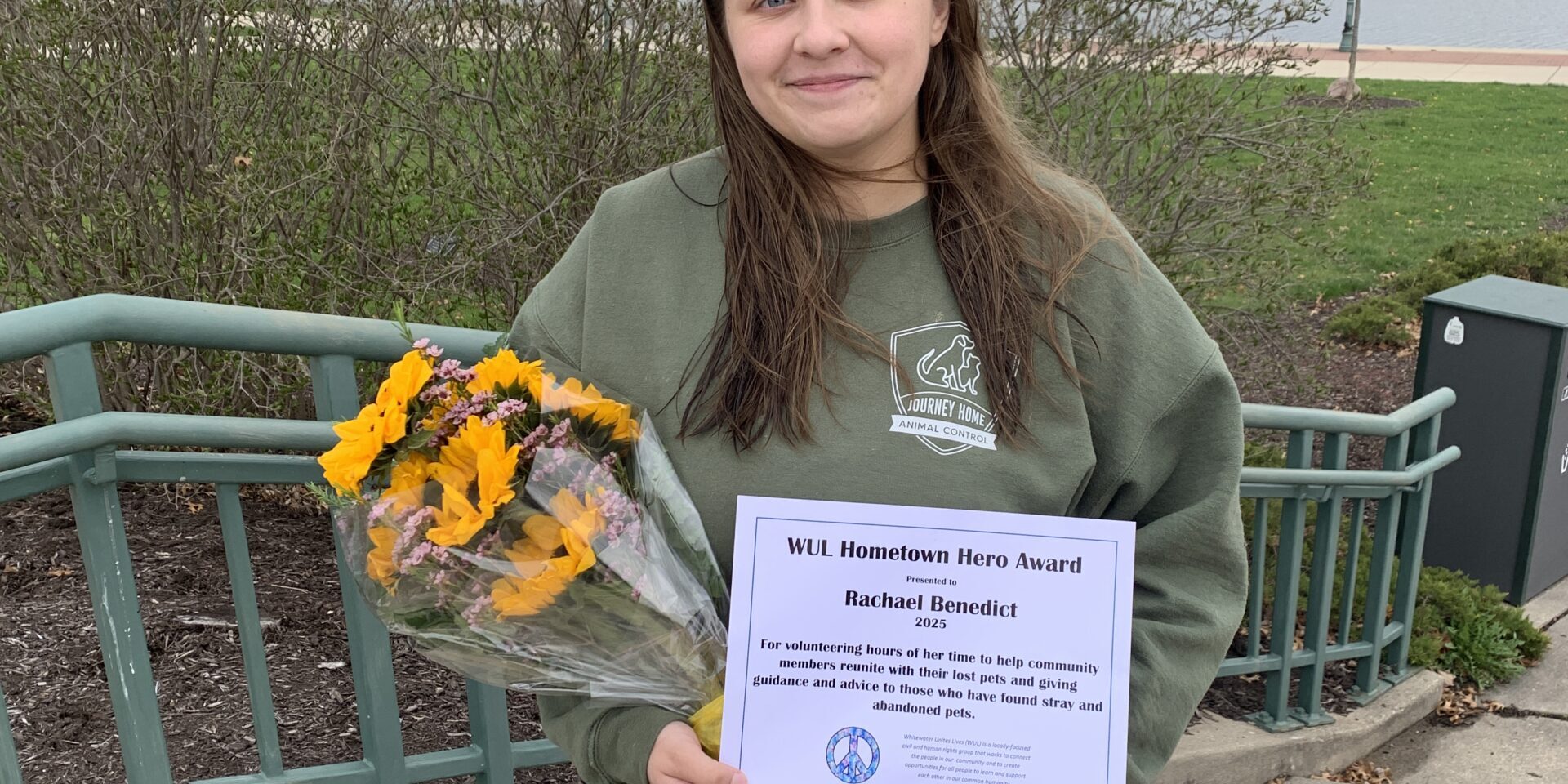By Lynn Binnie
Whitewater Banner Staff
whitewaterbanner@gmail.com
There are two types of COVID-19 testing. One type is designed to show whether a person has an active infection. That test will be available from this Wednesday through Saturday from 11 a.m. to 7 p.m. on the UW-W Campus. The other test aims to determine whether a person has previously been infected by the coronavirus but has recovered and developed antibodies. Information on that test is provided in the press release below. Although it is hoped that a positive antibody result would demonstrate that the individual may have immunity from further COVID-19 infection for a certain period of time, this has not yet been proven. Consequently even a person who is found to have antibodies should not discontinue physical distancing, use of a mask, etc.
The Banner inquired of both Mercyhealth and SSM Health regarding the anticipated false positive/negative results that might be anticipated, as well as what the costs would be for the test if a person did not have insurance coverage for it.
Trish Reed, Media/Public Relations Specialist III for Mercyhealth, provided the following response from their medical director: “This antibody test gives us a better understanding of how many people in Rock County or specific community have been infected. There isn’t enough information currently available on whether testing positive means the person really has immunity or future immunity. We will not know until medical professionals understand the virus better which will come with time. Currently, the cost varies.”
Erica Mathis, Marketing & Communications Liasison at SSM Health St. Mary’s Hospital Janesville responded, “SSM Health does not anticipate to see a high rate of positive results from the antibody tests, but knowing the amount of positive test results could have public health benefits. It can help our health agencies have a more complete picture of how the virus spread. It also helps to identify individuals who were infected but asymptomatic. Under the CARES Act, insurance is supposed to cover the cost of the antibody test. However, we recommend patients contact their insurance company to understand their individual insurance plan and if there would be any other associated costs to account for. Anyone is eligible to receive the antibody test if they are not and have not exhibited symptoms of an active COVID-19 infection, such as fever, chills, cough, difficulty breathing, muscle aches, sore throat or new loss of taste/smell within the past 14 days.”
Although the press release only refers to the test being available in Janesville, Roberta Wedl, MD, SSM Dean Medical Group, confirmed, “Yes, the covid antibody test can be obtained at any of the SSM Labs including Fort Atkinson. A provider needs to order the test and the patient needs to schedule a lab appointment (it is not a “walk in” test). Interested patients should contact their doctor or other primary care provider.” (Banner note: The Whitewater clinic is currently temporarily closed, with the providers practicing in the Fort clinic.)
Angie Rucker, Manager of the Mercyhealth Clinic in Whitewater confirmed that the antibody test is also available through that clinic. However, a staff member at the Fort Healthcare Internal Medicine and Pediatrics clinic in Whitewater indicated that their providers would refer their patients to a lab such as at Fort Memorial Hospital for the test.
This article from Fox6 provides some cautions issued by the American Medical Association regarding limitations to the test.
For reference, since the Banner was unable to obtain cost information for the local providers, healthlabs.com indicates that they do not bill insurance, but their price for the test is reported to be $139. Though they have no local lab, they indicate that they have some in the general area.
UPDATE: Per the following statement from the Centers for Disease Control and Prevention (CDC), the reliability of the antibody test is particularly low when the prevalence of antibodies in a population is low, which is almost certainly the case in our population currently. CDC indicates that in that case, less than those testing positive may actually have antibodies. The following statement is taken from this CDC page.
“Testing strategies
In the current pandemic, maximizing specificity and thus positive predictive value in a serologic algorithm is preferred in most instances, since the overall prevalence of antibodies in most populations is likely low. For example, in a population where the prevalence is 5%, a test with 90% sensitivity and 95% specificity will yield a positive predictive value of 49%. In other words, less than half of those testing positive will truly have antibodies. Alternatively, the same test in a population with an antibody prevalence exceeding 52% will yield a positive predictive greater than 95%, meaning that less than one in 20 people testing positive will have a false positive test result.”
